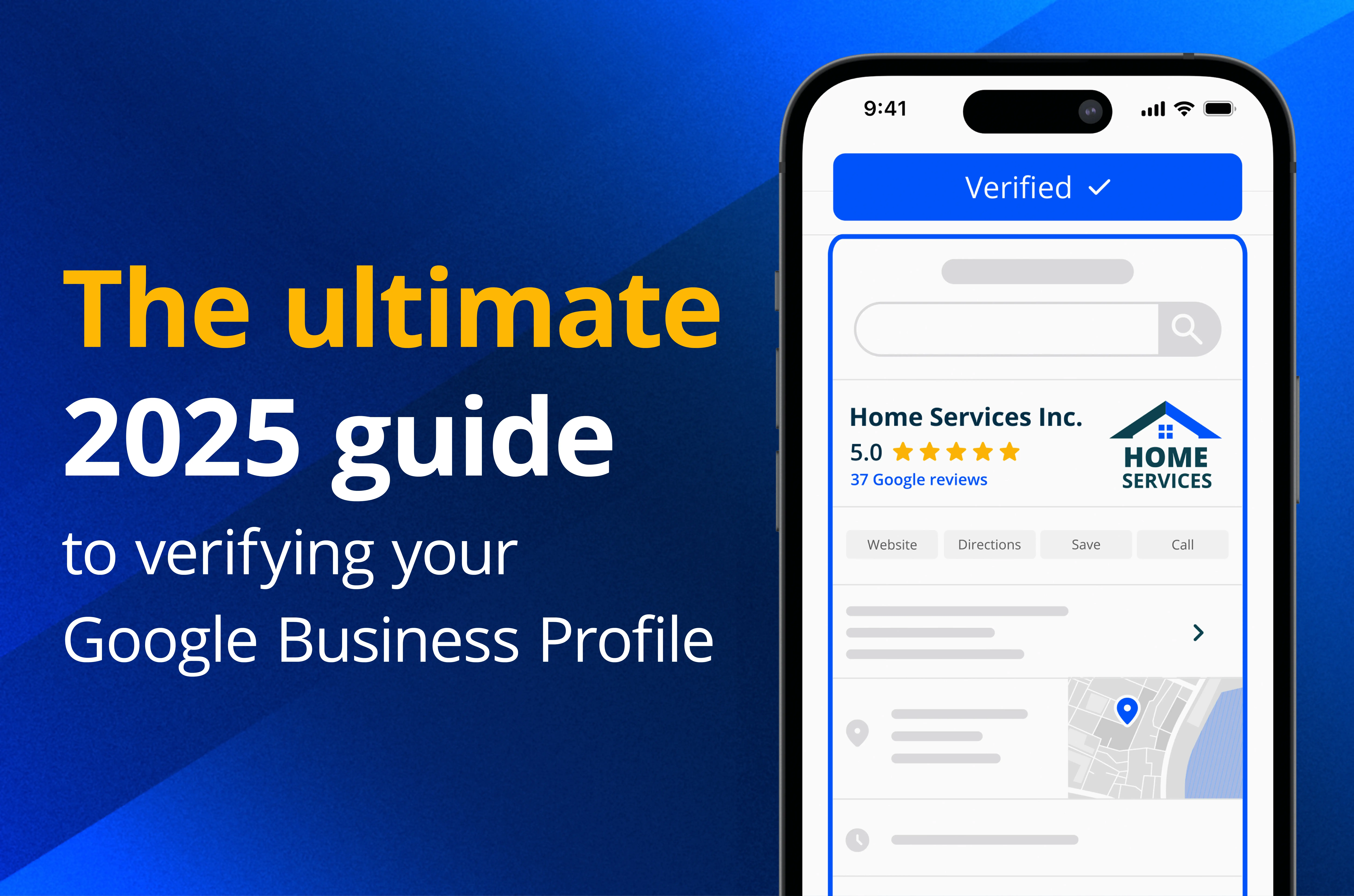
What is HVAC upfront pricing and why do you need it?
Offering upfront pricing to homeowners is a common practice among HVAC companies, but what about sharing your pricing to employees?
If you own or operate an HVAC business, you likely have a certain stance concerning whether or not to share your HVAC service prices with employees. Indeed, there are several reasons why some business owners opt to hide their prices from employees while other employers choose to embrace transparency when it comes to money.
If you’re on the fence regarding this issue and aren’t sure if it’s wise to share your prices with workers, here’s an in-depth look at both sides of the argument.
All the tools you need to run your business, in one place
Housecall Pro makes it simple to run your business. Through our software, you can dispatch techs, schedule appointments, create estimates and invoices, take payments, manage reviews and so much more – all on one platform.
Should I hide my price list from employees?
In Housecall Pro’s Facebook Group, a business coach posed a question to our community of home services Superpros. She asked for insight regarding why some employers insist on keeping their prices a secret, while others have no problem openly sharing that information.
The business coach’s post garnered an assortment of responses, with some home-service professionals explaining why they swear by being open with their workers and other employers detailing why sharing their prices would be disastrous for their businesses. Here are several perspectives that emerged from that discussion.
Those that agree with hiding prices from employees:
“Some employees see the pricing and see the amount of money coming in, and they want to get paid more. What they don’t see are all of the expenses that go into running a business.”
“It’s not a good idea to share your price list and price book with employees. They will only see dollar amounts, and they will always want more because they assume that the rest of the money goes into the business owner’s pocket. This leaves room for jealousy, theft, and gossip. I don’t believe every technician should see exactly how much money the company is making.”
“Let them see what you charge and the next thing you know, your service technicians are asking for a raise based on how much revenue they earn for the company each week. Or, even worse, they take your customers with your pricing structure in their back pocket.”
Those that believe in upfront pricing and price transparency:
“We are transparent with our employees about our prices and special offers, and they see all of our expenses as well. If they think our business is pocketing the difference between what we charge customers and what we pay our workers, they’re nuts.”
“I showed my lead tech how much per hour we were really paying for him versus what his hourly rate is. He did not realize that there are more taxes that we pay on top of what he pays. Most employees don’t realize that a $15-per-hour employee actually costs a business far more than merely that hourly wage.”
“Hiding your pricing system from your service tech is not a healthy business practice. Paranoia will destroy ya.”
“I don’t understand why companies hire employees they don’t trust or respect. We are always 100% transparent with everything, no surprises ― from income to expenses. Our employees are here to help us grow, not hold us back.”
“If you never let your employees in on your business, you have not created a business. You have created a job.”
“When employees feel included in the business, they feel valued and a part of things. You’ll have more long-term employees and people you can feel comfortable leaving your business to when you need to step back for one reason or another.”
“It depends on your HVAC company and how you are set up to operate. If your employees are the ones collecting money or handling service calls, obviously, they need to know to provide quality services to customers.”
“Keeping your pricing a secret eliminates online booking. I would not be afraid to be upfront and share my pricing. I feel it would hold my business back.”
“We aim to treat people right, pay them a fair and competitive wage, and believe they’ll stick around. We believe if we don’t do this, and if instead, we spend time trying to hide what we charge or be defensive about what we pay, then folks become suspicious or untrusting. This doesn’t make for a good work environment. We have our prices for all to see in online booking as well ― so employees and competitors in your service area and the whole world knows what we charge. We compete on value and service, not on price. Customers have choices, and employees have choices.”
Those that think techs should learn the price of owning a business:
“I tell our service technicians upfront what we pay in taxes and advertising. Those two costs are enough to make them think twice about quitting to start their own business.”
“My boss makes the argument that every new hire could potentially become a future competitor in the same service area. But out of the three employees who left him over the course of 10 years to start their own business, they all failed. (We’ve considered a noncompete clause.) I want them to see the numbers, understand the math, and be grateful they don’t have to pay the insurance, the dispatcher, the fuel bill, and the other $20,000 of expenses we have each month. The misconception is always that the boss is raking in a ton of money. I want to dispel that notion with the actual numbers. We brought our service manager in to provide sharing. Once we saw the actual profit margin, he became much hungrier for an efficient business.”
“If employees take your price book and leave to start their own operation, they’ll do so not knowing what it costs to run a business — and they’ll fail miserably. Meanwhile, you’ll still be in operation.”
“Our employees see every penny we make. If they have an issue, I’ll show them the money going out. We pay well and have never had an issue. As a matter of fact, I joked with our lead guy about becoming the boss, and he said, ‘No way! I see what you guys go through!'”
As you can see, there’s far from a consensus when it comes to this issue. Although many business owners support transparent pricing, others justifiably decline to do so — and with good reason. No two businesses are exactly alike, and depending on the amount of competition in your local HVAC market, your openness regarding pricing can affect your ability to maintain an energized workforce.
If you work in the HVAC industry and aren’t sure how to price your services, check out Housecall Pro’s HVAC price list template to help you get started. If you want to learn more about flat rate pricing versus hourly for your home service business, read this flat rate pricing guide to find out.
Pros and cons of HVAC upfront pricing with employees
If you’re of the mindset that it’s better to conceal your pricing from employees, here are a few of the advantages and drawbacks to that approach.
Pros
- You reduce the likelihood of employees copying your pricing and becoming competitors if you keep your prices a secret.
- If you’re successfully able to keep your employees in the dark, you can also avoid instances of them asking for more money.
- You could increase your profit margin by raising your customers’ rates without upping your employees’ compensation.
Cons
- If you’re reluctant to share your pricing with your employees, your techs might mistrust you, which could lead your workers to look elsewhere for employment.
- Your employees won’t be able to collect a customer’s payment upon completion of an airconditioning job if they don’t know how much your business charges.
- By refraining from sharing your prices publicly, you’ll likely to book far fewer jobs online compared to businesses that list all of their prices in plain view on their website.
Pros and cons of sharing your prices
If, on the other hand, you’re interested in being open and upfront about your pricing, here are the pros and cons you can expect using that approach.
Pros
- Pricing transparency can increase trust between your business and its employees, which can boost job satisfaction and encourage your tech to stay with your business longer.
- Your employees can collect payments from customers upon completion of a job or quote costs on the fly if they’re aware of how much your business charges.
- When your prices are public knowledge, you can allow customers to book appointments online and pay for your services in advance.
Cons
- If your techs know what your business charges customers — but they don’t know all the costs that go into employment — they could develop feelings of ill-will toward you.
- Ambitious employees could attempt to undercut your business and steal your customers once they learn your prices.
- If you list your prices online, your competitors will know how much your company charges, which can evolve into a pricing war.
How to deal with employees who demand a raise after discovering your prices
Perhaps the biggest reason why some companies shield their pricing from employees is that they fear their employees will demand more money after learning how much their company charges customers.
As several Superpros mentioned in the conversation on Facebook, one effective way to defuse situations like this is to take the time to break down the numbers and show employees exactly how much money goes into operating a business. By explaining to your team the ongoing expenses that come along with running a business and detailing line items such as taxes, insurance, and overhead, your technicians can develop a deeper appreciation of your business and their role in it.
What about industries with less overhead?
In home-service industries in which labor (rather than parts) is the primary cost to customers, business owners might be more likely to keep their prices hidden from employees. Landscapers, window washers, and house cleaners, for instance, spend relatively little on parts and supplies compared to plumbers, electricians, and HVAC experts. In these industries, business owners might want to think twice before sharing their price list or flat rate pricing with employees.
Conclusion
Honesty and transparency are key to operating a successful, long-lasting business, but for some business owners, it can make more sense to keep your pricing under wraps. If you’re not ready to share your prices with employees, Housecall Pro has an innovative employee permissions feature that allows you to hide pricing from technicians using employee permissions. If you’re not already using Housecall Pro, sign up now for a free demo of our all-in-one app designed to streamline your operations.






